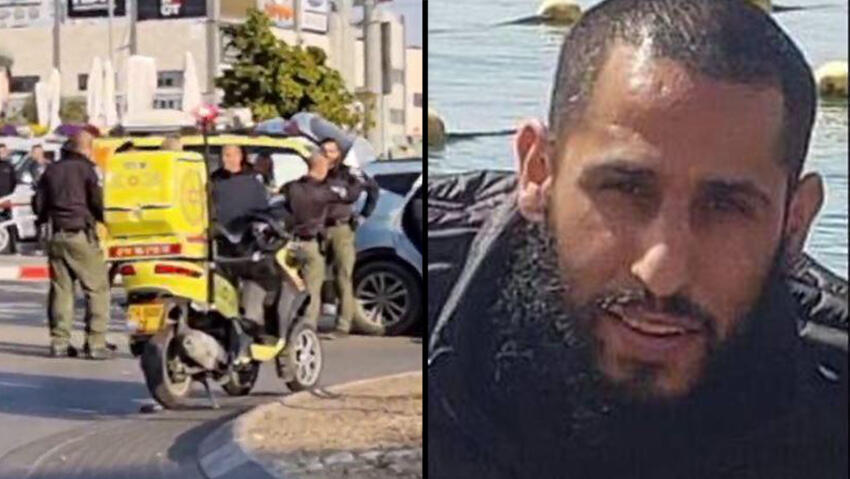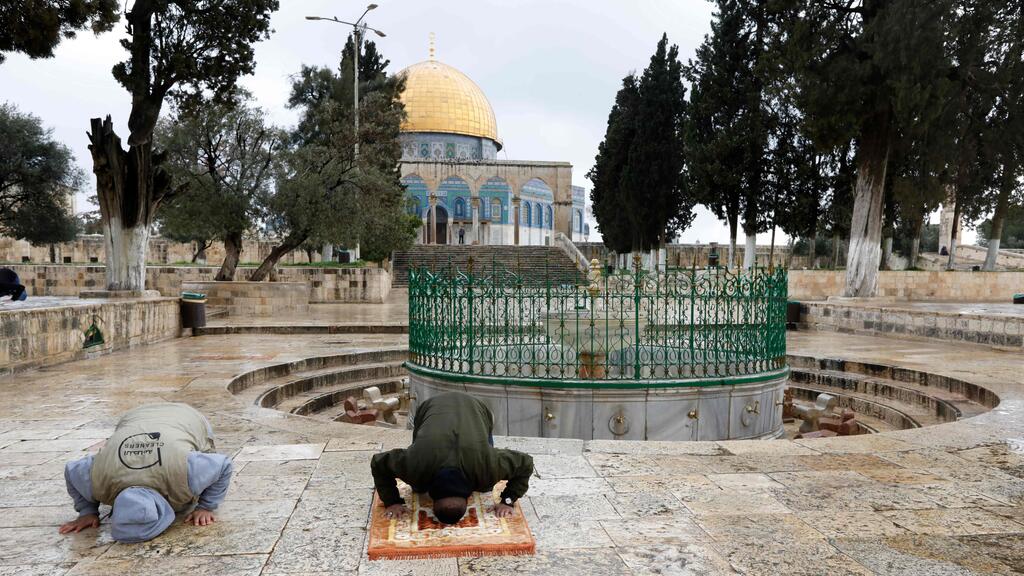Getting your Trinity Audio player ready...
The atrocious terrorist attack that took place in Be'er Sheva on Tuesday, only two and a half weeks before the holy month of Ramadan, have caught even the Palestinian Authority officials by surprise.
Palestinian sources and officials in Ramallah apparently even expressed their condolences in meetings with Israeli officials on Tuesday. However, they clearly stated they would not officially condemn the event, due to fear of harsh reactions from the Palestinian public.
3 View gallery


Hamas leader Yahya Sinwar, Palestinian President Mahmoud Abbas
(Photo: Reuters, Amit Shabi, EPA)
The same Palestinian officials claimed they were surprised to discover the terrorist who unsparingly took the lives of four Israelis was an Israel citizen of Bedouin descent.
Given the timing, news of the event is making Palestinian governing bodies uneasy as they try to upkeep stability, with Ramadan around the corner. The PA fears that widescale rioting may break out in the West Bank that could threaten its legitimacy.
Several terrorist attacks have been thwarted in the last few days, mostly in East Jerusalem and the West Bank. Up until Tuesday, none of them had led to such devastating outcome.
The terror spree in Be'er Sheva stands out from other recent attacks not only with the high death toll, which could spark copycat incidents, but also by the method used by the perpetrator.
The attack included a car ramming and a stabbing assault, reminding us of terror methods that were popular back in 2015-2016. The "success" of this attack could ignite a comeback of this method.
Palestinian security forces have increased alert levels throughout the West Bank in the last few weeks in order to avoid incitement to violence from Hamas, the Islamic Jihad and other Islamist groups.
PA officials have also been more attentive to the needs of marginalized groups, especially in areas with high concentration of extreme elements such as Hebron, Jenin, and East Jerusalem. This strategy aims to ensure that the month of Ramadan doesn't result in uncontrollable violent upheaval.
Israel has tried to ease restrictions on Palestinians in the West Bank and in the Gaza Strip, with the same goal in mind. More Gaza workers have been granted Israeli work permits, import and export of have been expanded, water supplies increased, and provision of more medical equipment has been granted to Gazan facilities.
The PA has also been permitted to import cargo from Jordan into Israel through the Allenby Bridge crossing, and the quota of West Bank Palestinians allowed to work in Israel has been increased.
More so, Israel will allow numerous Palestinians to enter Israel to pray in the Al-Aqsa Mosque, gesturing freedom of worship.
Revoking these policies, as an answer to the public's outcry following Tuesday's attack, could bring the opposite effect of what they set out to achieve. Hamas, which has bee trying for awhile to appeal to Israeli Arabs, could take advantage of this to incite and call for violence.
Israel must do everything to avoid falling into this trap.



